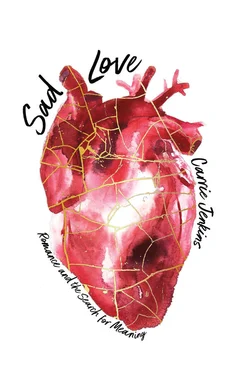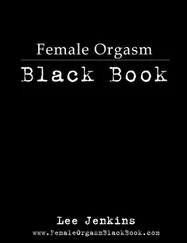Chapter 2begins by tracing out those analogies. I argue that, just as pursuing happiness doesn’t work, pursuing the romantic happy ever after doesn’t work either. In fact this, too, tends to make us miserable. I call this the Romantic Paradox.
In chapter 3, I discuss a well-known response to the Paradox of Happiness, which I think will also help us with the Romantic Paradox. This response requires us to distinguish happiness from something else. The “something else” is often called eudaimonia , which tends to be translated as “flourishing” or “well-being.” And so the classic resolution to the Paradox of Happiness, then, is to recognize that eudaimonia is more important than happiness and to engage in activities that promote eudaimonia (which may, as a side benefit, bring happiness in its wake).
It’s one thing, however, to appreciate that eudaimonia is different from happiness. It’s another – much tougher – thing to say what eudaimonia is . The concept of eudaimonia is ancient and is generally associated with the philosophy of Aristotle. But he didn’t invent it. 5In any case, we have all kinds of tools at our disposal now for sharpening the concept that Aristotle didn’t have, such as twentieth-century literature and contemporary empirical research. Conceptions of eudaimonia inspired by Aristotle do not appeal to me, and some of his ideas about “human flourishing” all too easily spill over into ableism, or even eugenics. So in the remainder of chapter 3I take up some of the tools available to me and try to fashion a very different conception of eudaimonia.
I take my cue from the etymology of the word eudaimonia , calling attention to the daimons – literally, “spirits” – that shape our loves, and indeed our lives. Daimons don’t have to be understood as literally supernatural, but the daimon metaphor can be extremely useful for thinking about everything from an individual’s “vibe” to the environment of a workplace, the spirit of a nation state, or the intangible presence of capitalism in our lives.
Chapter 4brings further ingredients into the mix that I will use to expand upon what eudaimonic love is. It begins by surveying some of the (serious) methodological challenges that face anyone trying to understand love and happiness, which I try to locate in the context of general difficulties with “knowing ourselves.” This leads into a conception of who and what we are that draws from existentialist philosophical traditions, emphasizing our agency in the process of creating ourselves.
This in turn can be applied to help me explain how eudaimonic love differs from romantic love, to which I turn in chapter 5. One of the most important differences is that eudaimonic love is active and dynamic, while romantic conceptions are typically passive and static. In the romantic framework we talk about “falling” in love, as if it were something that simply happened to us, like falling into a pit. Or being struck by a bolt of lightning (another common romantic metaphor). In eudaimonic love we choose our own way, guided by what makes our lives and our projects meaningful. Such choices are constrained by circumstances and the choices of others, but I understand these constraints by analogy with the role of constraints in artistic creativity. I also draw on research concerning “job-crafting” (a process by which employees craft their roles, adding to or even going against their job descriptions) to develop an analogous notion of “love-crafting,” which is the creative practice of tailoring loving relationships to the skills, needs and values of the people in them.
Ultimately, I argue, we need to stop hearing “romantic” as a positive description. It’s actually something that should raise a sceptical eyebrow. I urge that we move towards understanding ideal love as eudaimonic, not romantic. I also think we would do well to stop thinking so much about whether our partners “make us happy” and focus instead on whether they lovingly collaborate with us in the co-creation of meaningful work, and of our selves.
That, then, is this book’s destination. Its starting point is a conversation I had a few years ago, with my American husband, about “the pursuit of happiness” …
1 1. I don’t think it works for mathematical rules, for example, although this was one of Wittgenstein’s intended applications (as developed in his 1956 Remarks on the Foundations of Mathematics). In my 2008 monograph Grounding Concepts: An Empirical Basis for Arithmetical Knowledge (Oxford: Oxford University Press) I work from a very different conception of mathematics.
2 2. To call something socially constructed is not to deny its reality or its power. The process of constructing norms for love starts off with a rhyme and a fairy tale, but what we end up with is as real as a law, a church or a government (all of which are also social constructs – real and powerful ones). If love’s rules are more vague and amorphous than those of these other constructs, that only helps love better evade scrutiny and challenge. We can’t fight back against something if we can’t even say what it is.
3 3. See Elizabeth Brake, Minimizing Marriage: Marriage, Morality, and the Law (Oxford: Oxford University Press, 2012), chapter 4.
4 4. For a recent and thorough scholarly exploration, see Cultural Constructions of Identity: Meta-Ethnology and Theory, ed. Luis Urrieta, Jr., and George W. Noblit (Oxford: Oxford University Press, 2018).
5 5. He didn’t even invent the word “eudaimonia.” And it might not have meant what he thought it meant. I’ll say more about this later.
Конец ознакомительного фрагмента.
Текст предоставлен ООО «ЛитРес».
Прочитайте эту книгу целиком, купив полную легальную версию на ЛитРес.
Безопасно оплатить книгу можно банковской картой Visa, MasterCard, Maestro, со счета мобильного телефона, с платежного терминала, в салоне МТС или Связной, через PayPal, WebMoney, Яндекс.Деньги, QIWI Кошелек, бонусными картами или другим удобным Вам способом.












